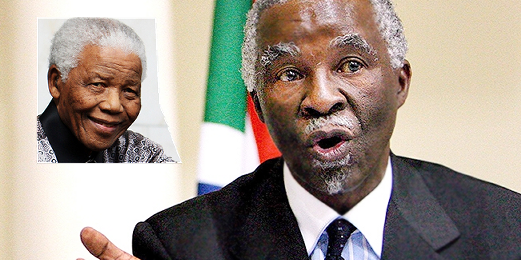Mini Tiananmen: Civillians Massacred in China
MONDAY, DECEMBER 12, 2005
 International media are still downplaying the scale of last week's massacre of civillians in China's Guangdong province, putting the number of dead between two and twenty. But local reports set the toll far higher.
International media are still downplaying the scale of last week's massacre of civillians in China's Guangdong province, putting the number of dead between two and twenty. But local reports set the toll far higher.On December 6, Chinese authorities in the rural village of Shanwei deployed 3,000 paramilitary police with tanks and machine guns, who have killed in all between 50 and 70 protesting villagers --the greatest anti-civillian use of used military force since the June 4, 1989 Massacre in Tiananmen Square.
By the 8th of December, 33 residents had been killed and several dozen were missing say local reports. The villagers had been protesting for proper compensation after corrupt officials had expropriated farmers' land for a power plant. Protests against corruption, pollution and land seizures have become increasingly common in rural China.
In a damage limitation exercise, the authorities in China have arrested a police commander who ordered officers to open fire, media reports say.
 Shanwei Enforces Martial Law,
Shanwei Enforces Martial Law, Relatives Beg to Claim Bodies
One villager told news media: "As of now, the authorities do not simply arrest and then sentence people, but shoot them at will. A villager was shot dead in public yesterday afternoon."
The villagers say that the Shanwei city government told victims' family members not to tell the outside world that the victims were shot, and the city government will give them welfare, etc. With people being shot in the streets, villagers were isolated from each other. Phone services were also cut off.
A 70-year-old farmer said that he had never seen such a terrible thing in his lifetime. "When the Chinese Communist Party kills people, it is even scarier than when the Japanese army attacked the town or than bandits and gangsters. The villagers of Dongzhou are honest people who can endure hardship. How could the CCP fire on such decent citizens?!"
 Another villager said that the authorities attempted to destroy the corpses. After the massacre on the night of December 6, the authorities cremated some of the bodies and sent others to the seashore for disposal. Some residents wanted to take back the corpses but were prevented from doing so. According to a report by Radio Free Asia, villagers saw police putting police uniforms on three villagers' bodies and taking photos.
Another villager said that the authorities attempted to destroy the corpses. After the massacre on the night of December 6, the authorities cremated some of the bodies and sent others to the seashore for disposal. Some residents wanted to take back the corpses but were prevented from doing so. According to a report by Radio Free Asia, villagers saw police putting police uniforms on three villagers' bodies and taking photos.The armed police and riot teams cleared the scene in front of the power plant where they had fired on the villagers. Villagers burned incense and knelt down before the police, begging to get the bodies of their family members back.
Phones Cut Off and Reporters Denied Information
When questioned by Agence France Presse (AFP), officials and police of Shanwei City said that they knew nothing of such an event and refused to make further comments.
The telephone interviews of overseas reporters were often cut off right in the middle. Radio Free Asia (RFA) reported that the cell phones and telephones belonging to the town's representatives who had informed RFA of the situation had all been cut off.
There are still thousands of armed police and public security men guarding the entrance to the town and no one is allowed to leave. Police have arrested three representatives of the town, claiming it was a narcotics-related investigation.
The television news reports from Shanwei City stated that the villagers opened fire first. One villager said angrily, "How can common people have guns? The government owns all the guns!"
Background Leading to the Incident
 All this stems from a dispute in Donzhou Town, Shanwei City, over land compensation. The municipal authorities, in order to build a power plant, appropriated a large section of the farmers' land and also forbid villagers from catching or raising fish in a nearby lake. Some villagers said that they were not opposed to the new power plant, but that their compensation money from the central government had been taken by corrupt officials, so they did not receive just compensation for the land.
All this stems from a dispute in Donzhou Town, Shanwei City, over land compensation. The municipal authorities, in order to build a power plant, appropriated a large section of the farmers' land and also forbid villagers from catching or raising fish in a nearby lake. Some villagers said that they were not opposed to the new power plant, but that their compensation money from the central government had been taken by corrupt officials, so they did not receive just compensation for the land.The farmers appealed to the authorities this past May, asking them to solve the compensation problem, but no one from the government took care of it. As a result, the villagers began on September 21 to block the road on which the power plant's transportation vehicles made their way to the plant.
On December 5, authorities in Shanwei, Guangdong Province, sent about 100 riot police to the power plant. When some representatives from Donzhou Town went to see the situation, they were immediately arrested. More than 3000 Donghzhou residents went to the plant to ask the police to release these representatives, but the police fired tear gas, then shot and killed villagers.

From agency reports and Epoch Times. The photos shown were taken on
the morning of December 9 by Epoch Times reporters in China. Link Link


Comments
Post a Comment